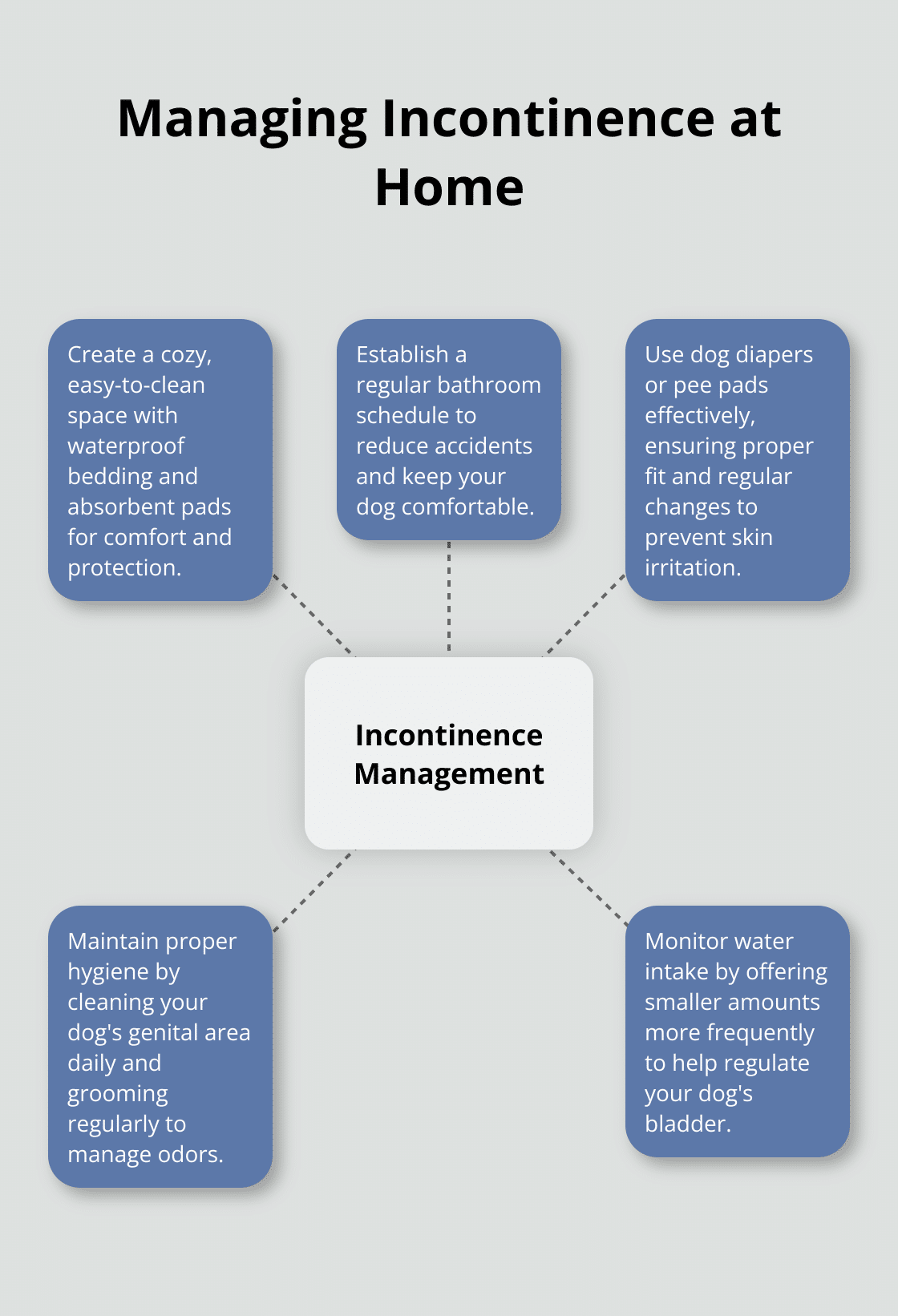As our beloved canine companions enter their golden years, it’s not uncommon for them to develop certain age-related issues. One such concern that can arise is incontinence, or the loss of bladder control. If you’ve noticed accidents around the house or damp spots on your senior dog’s bedding, you’re not alone. This guide will delve into the essential facts about senior dog incontinence, its tell-tale signs, available treatments, and how you can best support your furry friend through this challenging phase. It’s crucial to approach this issue with patience and understanding, as your senior dog is not at fault for these accidents.
The Essential Facts About Senior Dog Incontinence
Senior dog incontinence is more prevalent in female dogs, primarily due to age-related deterioration in the control of their bladder neck. This can lead to urine leakage when the bladder’s exit isn’t fully closed, a condition known as “sphincter mechanism incontinence,” which accounts for approximately 80% of incontinence cases. In some older dogs, a decline in cognitive function, similar to senility in humans, can also cause them to forget their house training, leading to involuntary accidents. It’s vital to remember that these incidents are involuntary, and punishing your dog will only lead to stress and confusion, potentially worsening the problem.
Beyond age-related causes, other factors can contribute to incontinence. These include fluctuating hormone levels, spinal cord or neurological issues, urinary tract infections, other underlying illnesses, and extreme stress or anxiety. If you are concerned about your dog’s condition, it’s highly recommended to consult your local veterinarian for a thorough check-up.
The Tell-Tale Signs of Senior Dog Incontinence
Recognizing the signs of incontinence early can help in managing the condition effectively. While wet patches on bedding are a common indicator, several other signs may suggest your dog is developing a problem:
- Damp legs: This is particularly noticeable in long-haired breeds.
- Persistent urine odor: You might notice a constant smell of urine on your dog or their bedding.
- Scalding on the skin: Constant contact with urine can lead to skin irritation.
- Increased licking: Your dog may show a tendency to lick their rear end more frequently.
It’s important to note that incontinence issues can sometimes be intermittent before becoming chronic. The problem can be exacerbated if there are additional medical conditions affecting the urinary tract. However, a key point to remember is that incontinent dogs typically do not experience discomfort or pain during urination and will still urinate normally during walks or when taken outside.
Medical Treatments for Incontinent Dogs
Fortunately, there are effective medical treatments available for senior dogs suffering from incontinence, and in most cases, these treatments are highly successful. The first step your veterinarian will take is a full health check, which may include a urine sample analysis. This helps to identify any underlying conditions that might be aggravating the incontinence, such as a urinary tract infection. By ruling out infections, kidney disease, diabetes, and illnesses that cause excessive water consumption, your vet can determine the most appropriate course of action.
The treatment approach will vary depending on the underlying cause. Dogs with hormonal imbalances will require a different treatment plan than those with infections or other illnesses. If there is no specific underlying problem and the incontinence is not severe, many veterinarians will opt for medication or hormone supplements.
Surgical Procedures to Treat Incontinence
In certain cases, surgical intervention may be necessary to effectively treat incontinence. Several procedures might be employed, often focusing on strengthening the bladder neck muscles. These can include implanting a “urethral occluder,” injecting collagen around the sphincter muscles, or surgically repositioning the bladder (“tacking”) into a more functional position. It’s worth noting that not all surgical treatments offer a permanent solution, which is why surgery is typically considered only after all other treatment options have been explored.
Other Ways to Help Your Incontinent Dog
Treatment for incontinence can take time, and a complete resolution is not always guaranteed. Many owners learn to manage incontinence as an ongoing issue. Thankfully, several products and supportive measures can make life easier for both incontinent dogs and their owners.
- Absorbent Bedding: Using specialized absorbent bedding is more hygienic, easier to clean, and helps wick urine away from your dog’s skin, reducing discomfort. Incontinence pads designed for dogs are also available.
- Hygiene Routine: Washing and drying your dog’s back legs daily can remove any urine traces and prevent skin irritation.
- Frequent Potty Breaks: Providing your dog with ample opportunities to empty their bladder by taking them outside frequently is essential.
Crucially, never attempt to manage your dog’s incontinence by reducing their water intake. Unless there’s a specific underlying medical issue diagnosed by a vet, it’s unlikely that excessive drinking is the cause. Dogs require a constant supply of fresh water, and restricting it can lead to dehydration and serious health complications.
If you are concerned about your senior dog’s incontinence or wish to discuss treatment options, please reach out to your local Calder Vets branch or contact them via their Dewsbury Hospital at 01924 465 592. You can also book an appointment online for further assistance.

